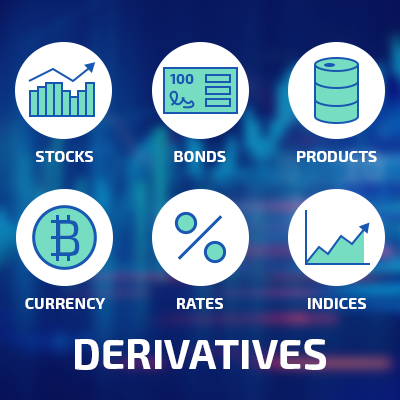
For traders there is a large toolkit for financial transactions to profit on the difference in exchange rates when trading valuable assets. These popular and convenient tools are called derivatives.

For traders there is a large toolkit for financial transactions to profit on the difference in exchange rates when trading valuable assets. These popular and convenient tools are called derivatives.
Derivative - a type of agreement (transaction) based on the potential value of a particular valuable asset.
The owner of the derivative has an agreement that he will purchase a certain (basic) product. This product does not even have to be stored somewhere and the mere fact of having a derivative already gives you the right to use the product that you are obliged to sell / buy / rent / exchange. In turn, the owner of the derivative also agrees to fulfill its conditions and purchase goods. All necessary conditions for the transaction are negotiated at the conclusion of the contract.
Derivatives can be used for speculation in order to make money. You can easily sell it to someone for real cash or securities. Also, they are often used for hedging. For example, if the underlying product is any stock that has risen sharply in price, the derivative makes it possible to purchase them at a previously agreed lower price. Often, hedging is much more important than directly receiving the goods. Of course, as elsewhere in the market, a derivative can not only make a profit, but also a loss.
Derivative transactions are distinguished by several features:
Like any transaction in the financial market, the derivative has its pros and cons.
Pros:
Cons:
There are several most common types of derivatives that are usually divided into two groups: by type of transaction and by type of asset.
By type of transaction:
By type of asset:
Please note that our services are provided only to the residents of the following counties (in alphabetical order): Austria, Bulgaria, British Virgin Islands, Croatia, Cyprus, Czech Republic, Denmark, Estonia, Finland, France, Germany, Greece, Hungary, Ireland, Italy, Kazakhstan, Latvia, Lithuania, Luxembourg, Malta, Netherlands, Oman, People's Republic of China, Poland, Portugal, Romania, Russia, Slovakia,Slovenia, Spain, Sweden, Ukraine, United Arab Emirates.
Please feel free to contact out Support in order to get further assistance.